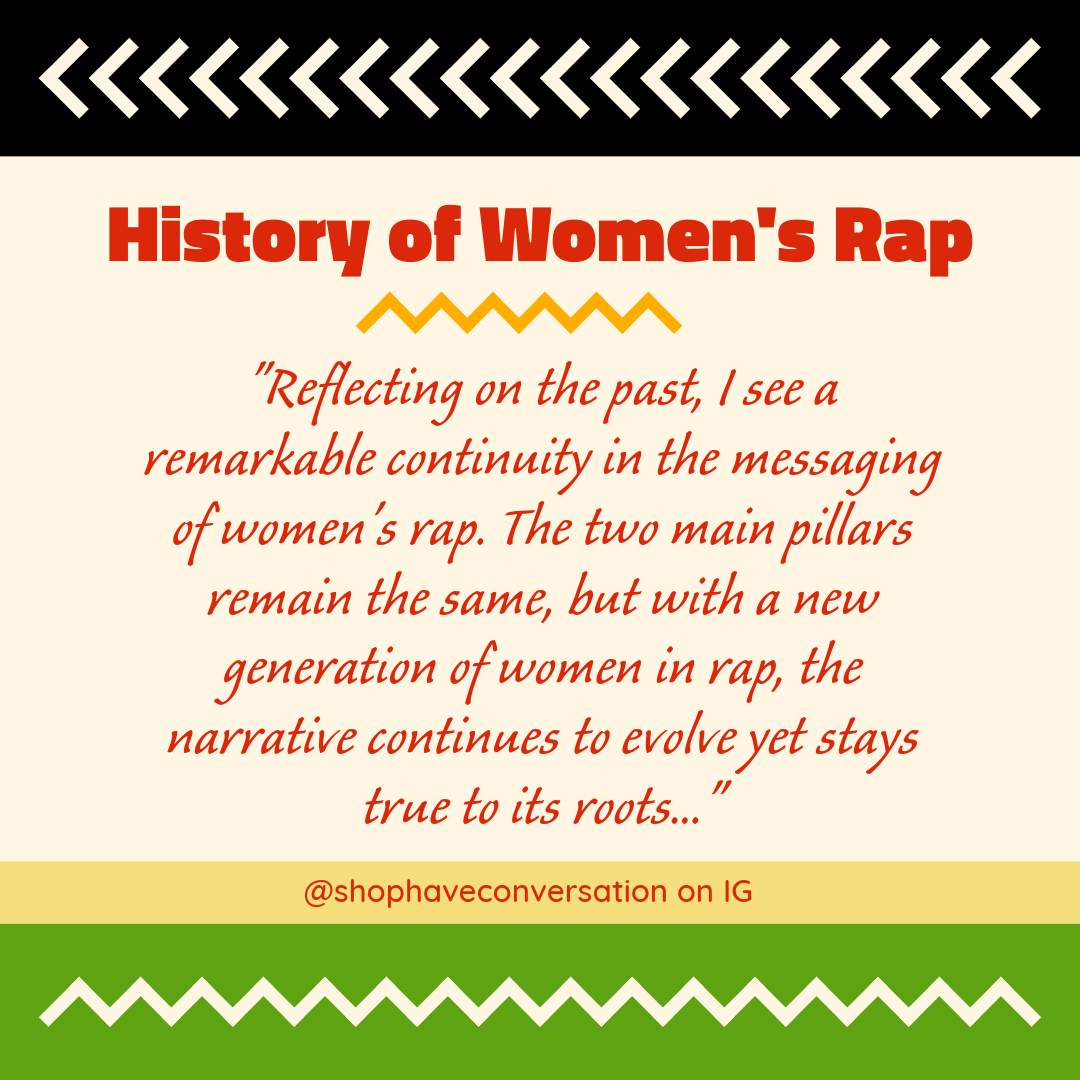With all the new rap girlies hitting the scene and making a thought-provoking impact, whether for good or bad, I ponder how we got here. There's Megan, Glo, Flo Milli, Latto, K Carbon, Doja Cat, and the list goes on, right? Considering there's always so much conversation around what's acceptable versus what's not related to what women rappers should rap about, I wanted to take a trip down memory lane to uncover just how much the women emcee movement's messaging has changed or not.
To do that, I went back to the '70s, the '80s, and '90s when we had revolutionary women rappers hit the scene, such as Salt-N-Pepa, MC Lyte, Eve, Da Brat, Trina, Monie Love, Yo-Yo, Lil' Kim, Foxy Brown, to name a few. However, we must acknowledge the first ever woman emcee, MC Sha-Rock, known as the "Mother of the Mic," who rose to recognition in the 1970s for her captivating lyrical ability, which allowed her to become a part of the 70's group called "The Funky 4+1." With Sha-Rock at the core of its heartbeat, it became the first hip-hop group to get a record deal and was catapulted into mainstream television when Saturday Night Live invited them to perform. And while we're here, remember MC Lyte, the first woman emcee to record a solo album.
Then there was the 1980s release of "Rapper's Delight," released by Sylvia Robinson, the founder and CEO of Sugarhill Records. The record helped set the tone for the first message of women's empowerment against the misogyny women rappers suffered from male rappers and men within the music industry. It was the first hip-hop song to accomplish mainstream success, shooting up the Billboard chart to the Top 40 records of that time. With the release of Rapper's Delight and Queen Latifah's 1989 hit, "Ladies First" with Monie Love, where they affectionately started calling women 'Queens, ' the messaging would be the foundation of women's rap for decades to come.
Then came the 80s and 90s, when Salt-N-Pepa was on the scene. They were the first women's rap group to promote women's sexual liberation with songs like "Let's Talk About Sex." Of course, Lil' Kim came with a more provocative approach, paving the way for more sexual expression in women's hip-hop.
Reflecting on the past, I see a remarkable continuity in the messaging of women's rap. The two main pillars remain the same, but with a new generation of women in rap, the narrative continues to evolve yet stays true to its roots.
Writer: Corey D. Rivers Jemison

